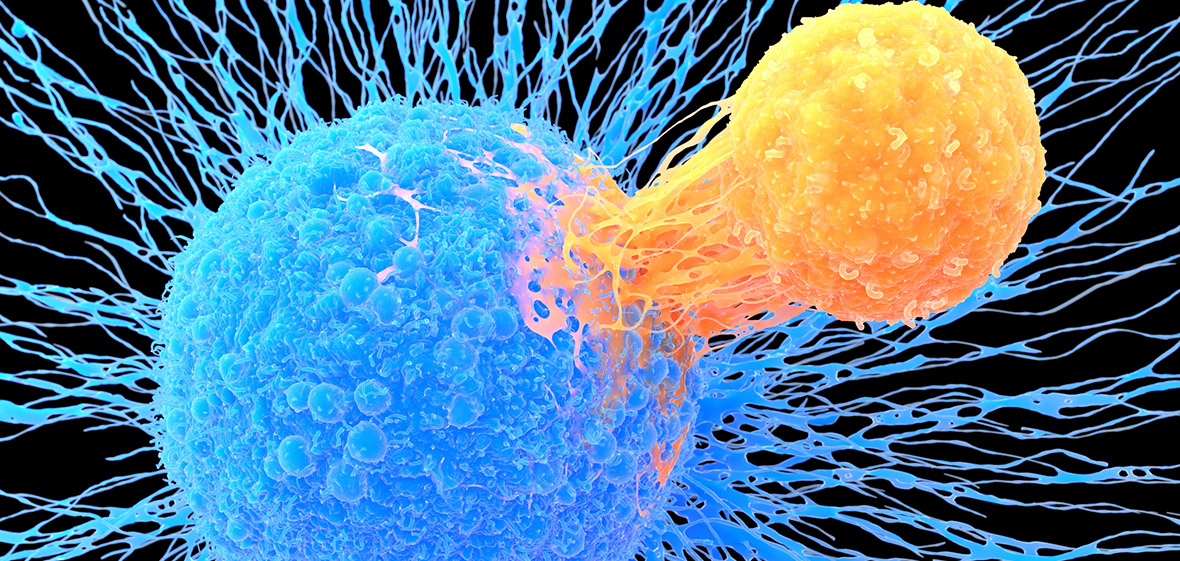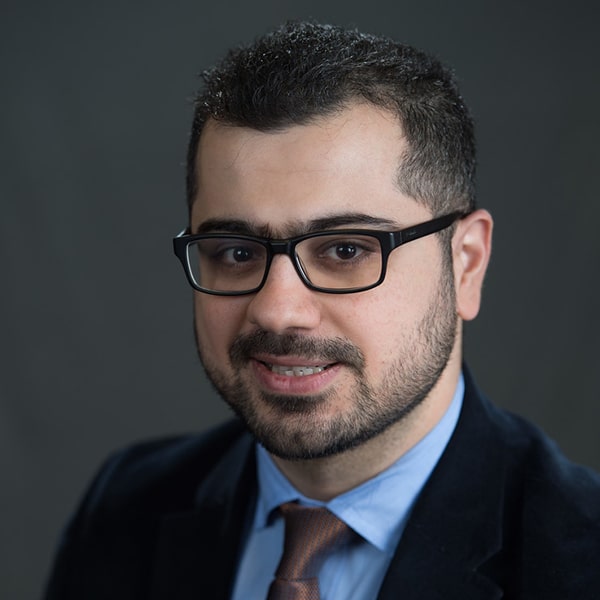
Chimeric antigen receptor (CAR) T-cell therapy is a cellular therapy uniquely designed to target cancer cells. CAR T-cell therapy powers the immune system to fight cancer with the patient’s own T-cells, which are a type of white blood cell called lymphocytes. This creates a strong impact to destroy cancer cells and to prevent cancer from spreading or recurring.
The Process
CAR T-cell therapy occurs through the following steps:
- White blood cells are extracted from the patient via a venous catheter.
- The cells are sent to a pharmaceutical company called Kite. Kite enriches and activates T-cells, genetically engineers T=cells to be able to detect and kill cancer cells with a specific target and grows and expands the number of CAR T-cells.
- The cells are then ready for infusion at UofL Health – UofL Hospital – Bone Marrow Transplant Unit.
- The patient receives chemotherapy to open the field for genetically-modified cells, which are infused into the patient, powering their immune system to fight cancer.
How is CAR T-Cell Therapy Being Used?
CAR T-cell therapy is currently used to treat blood cancers such as leukemia, lymphoma and myeloma. The therapy is also being tested with benign solid tumors and other non-cancer diseases such as HIV and rheumatoid arthritis.
UofL Health – Brown Cancer Center is now an authorized treatment site to treat patients with CAR T-cell therapy. Brown Cancer Center also offers clinical trials for this therapy, where immune cells are genetically modified through the Evan Dunbar Lab, part of University of Louisville’s Dunbar CAR T-cell Program, a good manufacturing practices facility.
UofL Health – Brown Cancer Center – Blood Cancers, Cellular Therapeutics and Transplant Program is internationally accredited by the Foundation for the Accreditation of Cellular Therapy. This accreditation is the gold standard of excellence for blood and bone marrow transplant programs in the U.S. The Blood Cancers, Cellular Therapeutics and Transplant Program is one of only two adult cancer centers in Kentucky to offer a stem cell transplant program, which means you can receive state-of-the-art care close to home.
Our multidisciplinary team works together to develop an effective treatment plan for you. We also have specially-trained oncology nurses to care for you before, during and after treatment; nurse coordinators to help walk you through the treatment process and clinical trials; dieticians who support nutritional needs; and social workers who can help you and your family overcome limitations or barriers to care. Call 502-562-HOPE (4673) to learn more or schedule an appointment.









